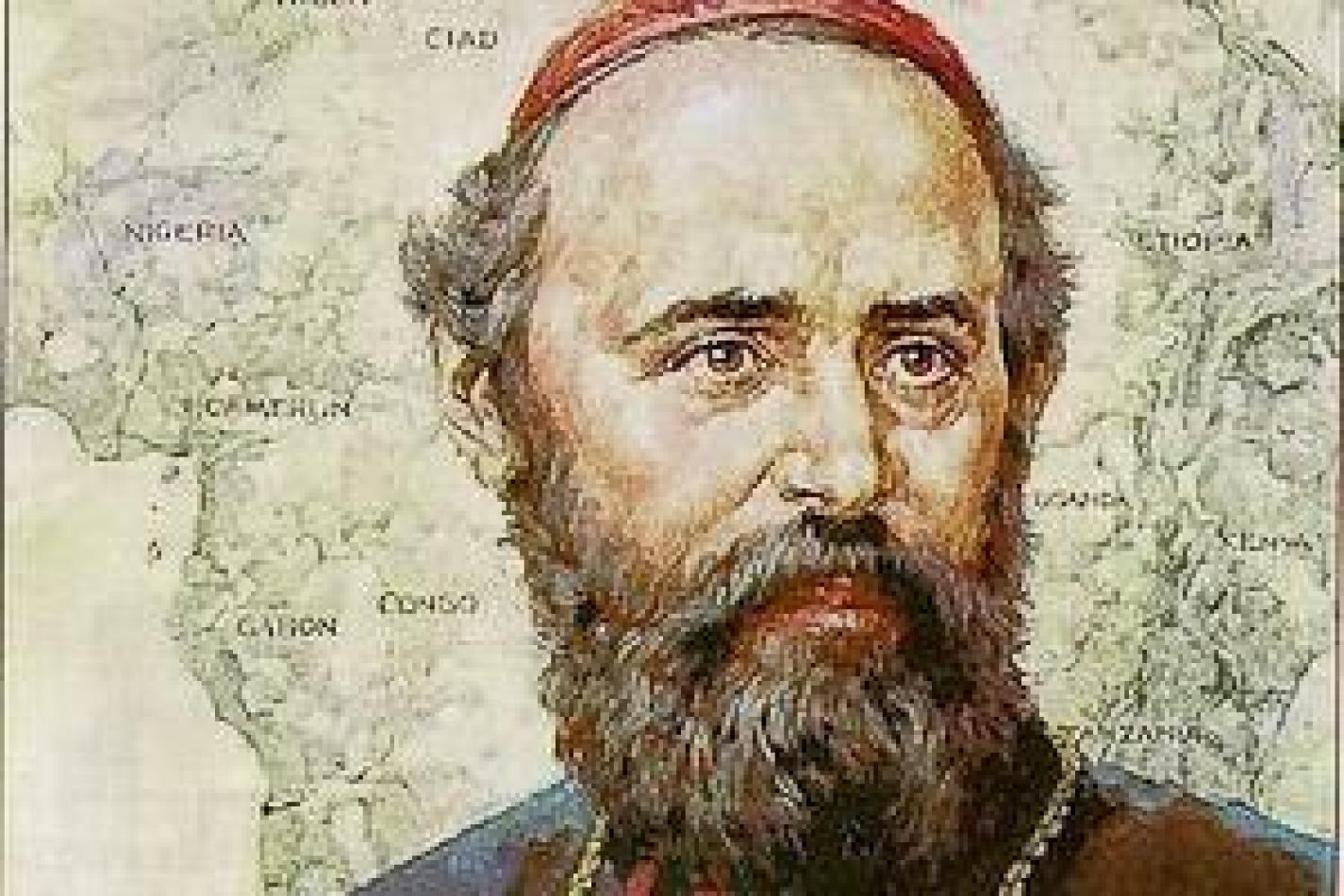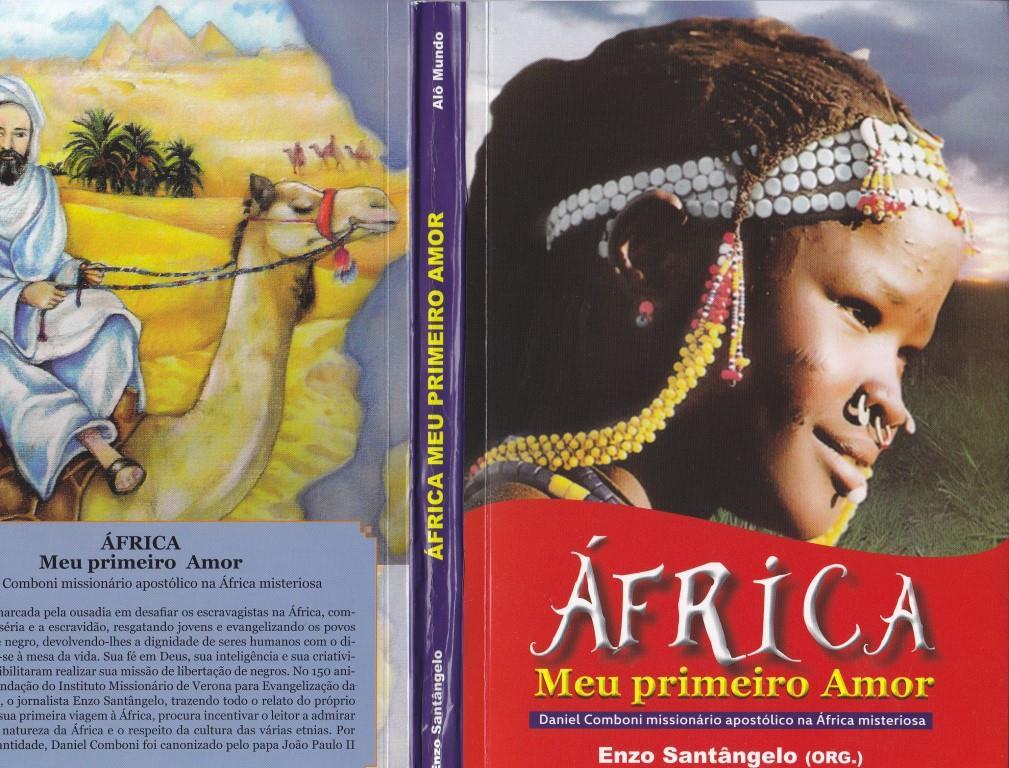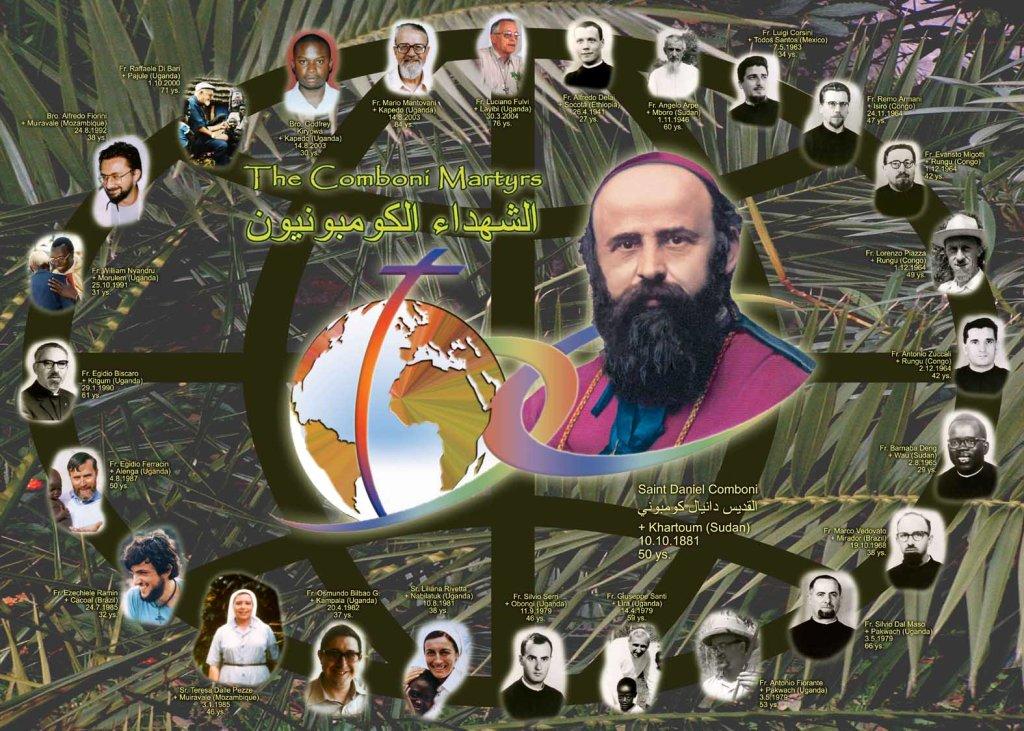Daniel Comboni
Comboni Missionaries
Institutional area
Other links
Newsletter
 Today, Daniel Comboni’s life and work have become a concrete reality in his missionary family present in Africa, America, Asia and Europe. The members of this family are the Comboni Missionaries of the Sacred Heart of Jesus (MCCJ), the Comboni Missionary Sisters (CMS), the Comboni Missionaries Secular Institute (ISMC) and the Comboni Lay Missionaries (CLM) Presently the Comboni Missionaries number 1831 and work in forty countries. The Comboni Missionary Sisters number 1704 and work in 30 countries. The Secular Missionaries are 147 and are present in seven nations.
Today, Daniel Comboni’s life and work have become a concrete reality in his missionary family present in Africa, America, Asia and Europe. The members of this family are the Comboni Missionaries of the Sacred Heart of Jesus (MCCJ), the Comboni Missionary Sisters (CMS), the Comboni Missionaries Secular Institute (ISMC) and the Comboni Lay Missionaries (CLM) Presently the Comboni Missionaries number 1831 and work in forty countries. The Comboni Missionary Sisters number 1704 and work in 30 countries. The Secular Missionaries are 147 and are present in seven nations.
The Lay Comboni Missionaries are about 150 and are present in 18 countries.
The updated Plan of Daniel Comboni joins together men and women from all over the world, consecrated and lay persons, to make common cause with the most challenging situations.
The Comboni Family, besides relying on the holiness of their Founder, can count on many missionaries, both men and women, who have incarnated his charism; can count on the present, which is open to the new situations of today’s mission; can count on the future that is filled with hope, as God’s Kingdom may be established among every people, race and culture.
A future that is also awaiting you…
From his Writings:
“The Plan pleased the Pope and Cardinal A. Barnabò, but it will surely encounter many obstacles when put into action, because the spirit of Christ’s charity is not present in many strata of society and institutions, due especially to the political environment.
28 This ‘Work’ must be Catholic, not Spanish, French, German or Italian. All Catholics must help the poor Africans, because one nation alone is not enough to help them. [ ] With our Plan we hope to open the way to the Catholic faith for all the tribes of all the areas where there are black people.
I believe that to achieve this goal we have to link together all the initiatives that have been implemented up to now, which, keeping unselfishly the noble purpose in mind, will have to forego all individual interests.”
Letter to Fr. G. Noecker, Bressanone, 9 November 1864, Writings n. 943-944.




